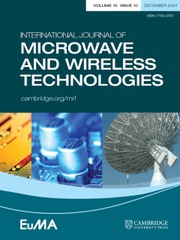The 22nd European Microwave Week was held in Paris, France, from September 29th to October 4th, 2019. This eagerly awaited week, organized by the European Microwave Association (EuMA), and chaired by Prof. Denis Barataud, hosted the 49th European Microwave Conference (EuMC), the 14th European Microwave Integrated Circuits Conference (EuMIC), and the 16th European Radar Conference (EuRAD). Those three very successful conferences were accompanied by 24 workshops and five short courses, covering the most significant and emerging topics in microwave engineering, and by the industrial exhibition (the largest in Europe) that totalized over 2000 visitors. Furthermore, this edition hosted the defense and security forum together with the new and very successful automotive forum that welcomed over 130 and 160 attendees, respectively.
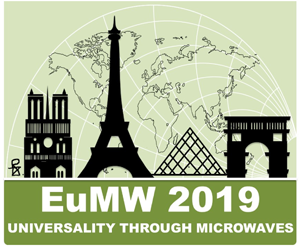
This Special Issue of the International Journal of Microwave and Wireless Technology gathers most of the best technical contributions from the 2019 European Microwave Week. After performing an exhaustive and detailed review process of the total number of received contributions (over 700), the Technical Program Committee, chaired by Nathalie Deltimple and composed by 110 members and more than 430 reviewers, selected the highest quality papers (with an acceptance rate below 57%) that were finally presented during the event. Then, just the top-rated conference contributions were invited to submit an extended version to the IJMWT journal. These works went through an additional review and editorial process. The selected papers reflect the most relevant topics and recent challenges in the area of microwave technologies, devices, and systems.
As Associate Editors of this EUMW 2019 special issue, we would like to warmly thank all authors for accepting our invitation to submit their works, and prepare their valuable contributions. Of course, this issue would not have been possible without the involved reviewers, whom we recognize and sincerely thank for their efforts, wise advices, exhaustive criticisms, and time dedication. Additionally, we would like to thank the entire EUMW 2019 organization team for their extraordinary work. Furthermore, we sincerely acknowledge our two Editors-in-Chief: Prof. Francisco Medina who started this Special Issue and gave us the opportunity to participate as Associate Editors, and Prof. Francisco Mesa who has helped us to successfully achieve this Special Issue.
To conclude, we would like to wish you a pleasant reading of this special issue and invite you to submit your research results in the International Journal of Microwave and Wireless Technologies.
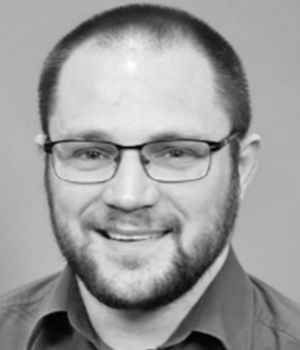 Anthony Ghiotto received the M.Sc. and Ph.D. degrees (both with distinction) in microwave engineering from the Grenoble Institute of Technology, Grenoble, France, in 2005 and 2008, respectively. From 2009 to 2012, he has held a Post-Doctoral Research Associate position at the École Polytechnique de Montréal, Montréal, QC, Canada. In 2012, he joined the Laboratory of Integration from Materials to Systems (IMS), where he is currently an Associate Professor (with Full Professor habilitation). His current research interests include the analysis, design, and integration of microwave and millimeter wave passive and active circuits both in PCB and silicon technologies. Dr. Ghiotto is member of the European Microwave Association (EuMA), and has been the Chair of the 49th European Microwave Conference (EuMC) held in Paris in 2019. He is an Associate Editor of the EuMA International Journal of Microwave and Wireless Technologies and a regular technical reviewer for the most relevant technical journals on his areas of interest. Since 2017, he is the chair of the IEEE MTT French chapter.
Anthony Ghiotto received the M.Sc. and Ph.D. degrees (both with distinction) in microwave engineering from the Grenoble Institute of Technology, Grenoble, France, in 2005 and 2008, respectively. From 2009 to 2012, he has held a Post-Doctoral Research Associate position at the École Polytechnique de Montréal, Montréal, QC, Canada. In 2012, he joined the Laboratory of Integration from Materials to Systems (IMS), where he is currently an Associate Professor (with Full Professor habilitation). His current research interests include the analysis, design, and integration of microwave and millimeter wave passive and active circuits both in PCB and silicon technologies. Dr. Ghiotto is member of the European Microwave Association (EuMA), and has been the Chair of the 49th European Microwave Conference (EuMC) held in Paris in 2019. He is an Associate Editor of the EuMA International Journal of Microwave and Wireless Technologies and a regular technical reviewer for the most relevant technical journals on his areas of interest. Since 2017, he is the chair of the IEEE MTT French chapter.
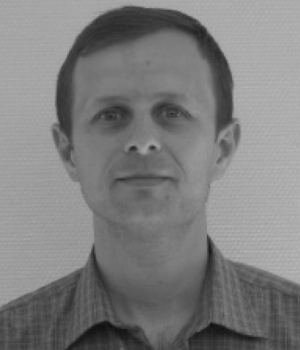 Alexandru Takacs was born in Simleu Silvaniei, Romania, in March 1975. He received the Engineer diploma in electronic engineering from the Military Technical Academy, Bucharest, Romania, in 1999, and the Master degree and Ph.D. degree in microwave and optical communications from the National Polytechnic Institute of Toulouse, Toulouse, France, in 2000 and 2004, respectively. From 2004 to 2007, he was a Lecturer with the Military Technical Academy of Bucharest, and an Associate Researcher with the Microtechnology Institute of Bucharest. From 2008 to 2010, he occupied a Postdoctoral position with the Laboratory for Analysis and Architecture of Systems (LAAS), National Center for Scientific Research (CNRS), Toulouse, France. During 2011, he was an R&D RF Engineer with Continental Automotive France, where he was in charge of antenna design and automotive electromagnetic simulation. Since 2012, he has been an Associate Professor with the University Paul Sabatier, Toulouse, France, where he performs research within LAAS–CNRS. He has authored or coauthored five patents, 31 papers in refereed journals, and over 80 communications in international symposium proceedings. His research interests include the design of microwave and RF circuits, energy harvesting and wireless power transfer, small antenna design, electromagnetic simulation techniques, and optimization methods, microelectromechanical systems (MEMS) circuits and systems.
Alexandru Takacs was born in Simleu Silvaniei, Romania, in March 1975. He received the Engineer diploma in electronic engineering from the Military Technical Academy, Bucharest, Romania, in 1999, and the Master degree and Ph.D. degree in microwave and optical communications from the National Polytechnic Institute of Toulouse, Toulouse, France, in 2000 and 2004, respectively. From 2004 to 2007, he was a Lecturer with the Military Technical Academy of Bucharest, and an Associate Researcher with the Microtechnology Institute of Bucharest. From 2008 to 2010, he occupied a Postdoctoral position with the Laboratory for Analysis and Architecture of Systems (LAAS), National Center for Scientific Research (CNRS), Toulouse, France. During 2011, he was an R&D RF Engineer with Continental Automotive France, where he was in charge of antenna design and automotive electromagnetic simulation. Since 2012, he has been an Associate Professor with the University Paul Sabatier, Toulouse, France, where he performs research within LAAS–CNRS. He has authored or coauthored five patents, 31 papers in refereed journals, and over 80 communications in international symposium proceedings. His research interests include the design of microwave and RF circuits, energy harvesting and wireless power transfer, small antenna design, electromagnetic simulation techniques, and optimization methods, microelectromechanical systems (MEMS) circuits and systems.
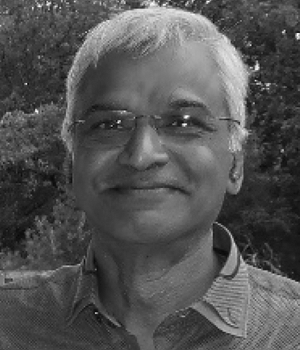 Jean-Christophe Nallatamby received the Ph.D. degree in electronics from the University of Limoges, Limoges, France, in 1992, where he is currently a Professor. His current research focuses on the microwave, low frequency noise characterization and modeling of high speed semiconductor devices, characterization of charge-trapping effects in GaN HEMTs, and understanding its physical behavior using TCAD based device simulation. He has supervised more than 25 Ph.D. students and he has authored or coauthored over 120 journal and conference papers. He was the coauthor of the book “RF and Microwave Oscillator Design”. In 2019, he was EuMIC TPC Chair of the European Microwave Week in Paris.
Jean-Christophe Nallatamby received the Ph.D. degree in electronics from the University of Limoges, Limoges, France, in 1992, where he is currently a Professor. His current research focuses on the microwave, low frequency noise characterization and modeling of high speed semiconductor devices, characterization of charge-trapping effects in GaN HEMTs, and understanding its physical behavior using TCAD based device simulation. He has supervised more than 25 Ph.D. students and he has authored or coauthored over 120 journal and conference papers. He was the coauthor of the book “RF and Microwave Oscillator Design”. In 2019, he was EuMIC TPC Chair of the European Microwave Week in Paris.
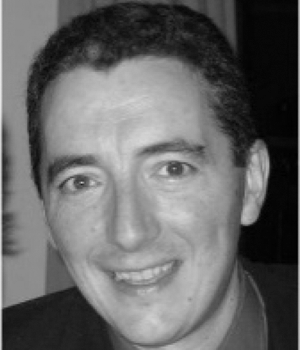 Joaquín Portilla received his M.Sc degree in Physics from University of Cantabria, Spain (1990) and Ph.D. from the University of Limoges, France (1994). From 1994 to 1997 he was with the Department of Communications Engineering of the University of Cantabria, as a postdoc researcher on RF and microwave circuits for radio-communications. In 1997, he joined the Institute of Physics of Cantabria and was involved in the Planck project of ESA. In 1998, he became staff of the Department of Electricity and Electronics of the University of the Basque Country, Spain, where he is an Associated Professor and a senior member of the research group in RF and Microwaves. He has been PI of several projects in the fields of radio-communications and scientific instrumentation.
Joaquín Portilla received his M.Sc degree in Physics from University of Cantabria, Spain (1990) and Ph.D. from the University of Limoges, France (1994). From 1994 to 1997 he was with the Department of Communications Engineering of the University of Cantabria, as a postdoc researcher on RF and microwave circuits for radio-communications. In 1997, he joined the Institute of Physics of Cantabria and was involved in the Planck project of ESA. In 1998, he became staff of the Department of Electricity and Electronics of the University of the Basque Country, Spain, where he is an Associated Professor and a senior member of the research group in RF and Microwaves. He has been PI of several projects in the fields of radio-communications and scientific instrumentation.
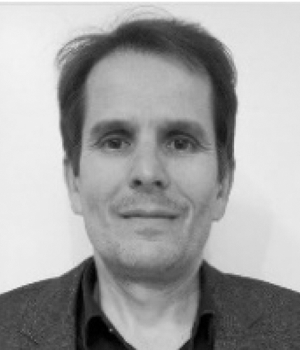 Jean-Yves Dauvignac received the master's degree in Control, Signal Processing, and Microwave Communications from University Nice Sophia Antipolis in 1988 and in 1993 the Ph.D. degree in Electrical Engineering from the same university. Since 1993 he is member of the Laboratory of Electronics Antennas and Telecommunications (LEAT) at University Cote d'Azur, firstly as Assistant Professor and since 2006 as Full Professor. Between 2000 and 2010, he was the header of the “Detection and Microwave Imaging” team in LEAT and he was the header of LEAT between January 2012 and December 2017. His research activities include design of UWB antennas in planar printed technology for ground and subsurface penetrating radar and for telecommunication systems, compact medialization of UWB antennas, radiation and diffraction measurements, microwave imaging. Between 2014 and 2018, he supervised the installation of a 3D scanner, a CATR and an RF upgrade to make possible radiation and diffraction measurements between 0.6 and 260 GHz at University Cote d'Azur. Pr Jean-Yves Dauvignac served as Technical Program Chair for EuRAD Conference in 2010 and 2019. Since 2009 he is often member of the technical Program Committee of EuMW week.
Jean-Yves Dauvignac received the master's degree in Control, Signal Processing, and Microwave Communications from University Nice Sophia Antipolis in 1988 and in 1993 the Ph.D. degree in Electrical Engineering from the same university. Since 1993 he is member of the Laboratory of Electronics Antennas and Telecommunications (LEAT) at University Cote d'Azur, firstly as Assistant Professor and since 2006 as Full Professor. Between 2000 and 2010, he was the header of the “Detection and Microwave Imaging” team in LEAT and he was the header of LEAT between January 2012 and December 2017. His research activities include design of UWB antennas in planar printed technology for ground and subsurface penetrating radar and for telecommunication systems, compact medialization of UWB antennas, radiation and diffraction measurements, microwave imaging. Between 2014 and 2018, he supervised the installation of a 3D scanner, a CATR and an RF upgrade to make possible radiation and diffraction measurements between 0.6 and 260 GHz at University Cote d'Azur. Pr Jean-Yves Dauvignac served as Technical Program Chair for EuRAD Conference in 2010 and 2019. Since 2009 he is often member of the technical Program Committee of EuMW week.
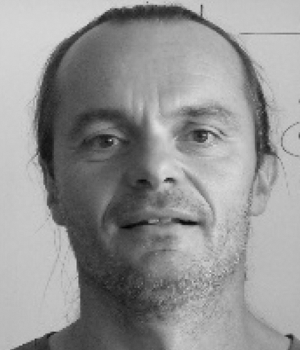 Stéphane Méric simultaneously graduated in 1991 from the National Institute for the Applied Sciences (INSA, Rennes, France) with an electrical engineer diploma and from the University of Rennes 1, with a M.S. degree in “signal processing and telecommunications”. He received Ph.D. (1996) in “electronics” from INSA and HDR (habilitation à diriger des recherches) from University of Rennes 1 in 2016. Since 2000, he is assistant professor at INSA and in 2005, he joined the SAPHIR team (IETR – CNRS UMR 6164, Rennes). He was interested in using SAR data in radargrammetric applications. Furthermore, he is currently working on radar system (CW, FMCW) dedicated to specific SAR applications (radar imaging in motorway context, remote sensing, MIMO configuration, passive radar imaging), and remote sensing applications. His education activities are about analog electronics, signal processing, radar and radar imaging, electromagnetic diffraction. At this time, he is the head master of the “Communication system and network” department at INSA Rennes. Dr. Stéphane Méric is coauthor of 40 conference papers, 11 journal papers, two book chapters, and one patent. He has been supervising eight Ph.D. students and currently five Ph.D. students. He was the EuRAD 2019 and the Automotive forum 2019 TPC co-chair. He has been designed as reviewer for national research programs and he get with educational team a teaching department in an engineering school at Oujda, Morrocco.
Stéphane Méric simultaneously graduated in 1991 from the National Institute for the Applied Sciences (INSA, Rennes, France) with an electrical engineer diploma and from the University of Rennes 1, with a M.S. degree in “signal processing and telecommunications”. He received Ph.D. (1996) in “electronics” from INSA and HDR (habilitation à diriger des recherches) from University of Rennes 1 in 2016. Since 2000, he is assistant professor at INSA and in 2005, he joined the SAPHIR team (IETR – CNRS UMR 6164, Rennes). He was interested in using SAR data in radargrammetric applications. Furthermore, he is currently working on radar system (CW, FMCW) dedicated to specific SAR applications (radar imaging in motorway context, remote sensing, MIMO configuration, passive radar imaging), and remote sensing applications. His education activities are about analog electronics, signal processing, radar and radar imaging, electromagnetic diffraction. At this time, he is the head master of the “Communication system and network” department at INSA Rennes. Dr. Stéphane Méric is coauthor of 40 conference papers, 11 journal papers, two book chapters, and one patent. He has been supervising eight Ph.D. students and currently five Ph.D. students. He was the EuRAD 2019 and the Automotive forum 2019 TPC co-chair. He has been designed as reviewer for national research programs and he get with educational team a teaching department in an engineering school at Oujda, Morrocco.

